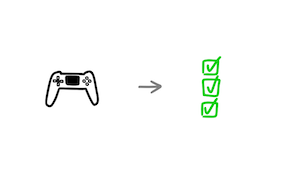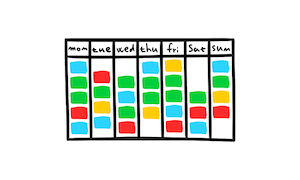How to use boredom to procrastinate less
Why get purposefully bored
We invite distractions into our lives. There's a part of us that wants to get distracted.
Why do we do that, when we're aware that getting distracted can interfere with some of our most important goals in life?
Because we seek stimulation.
It feels good to check your phone. What if someone messaged you?
It feels good to play games. Look at all the high-definition interactive imagery!
It feels good watch a video after video on YouTube. Have you seen the guy playing on plastic tubes with flip flops?
The issue is that all of the above bring you sustained levels of mental stimulation not available in the so-called real world.

So over time, if we indulge often, we get accustomed to certain levels of stimulation.
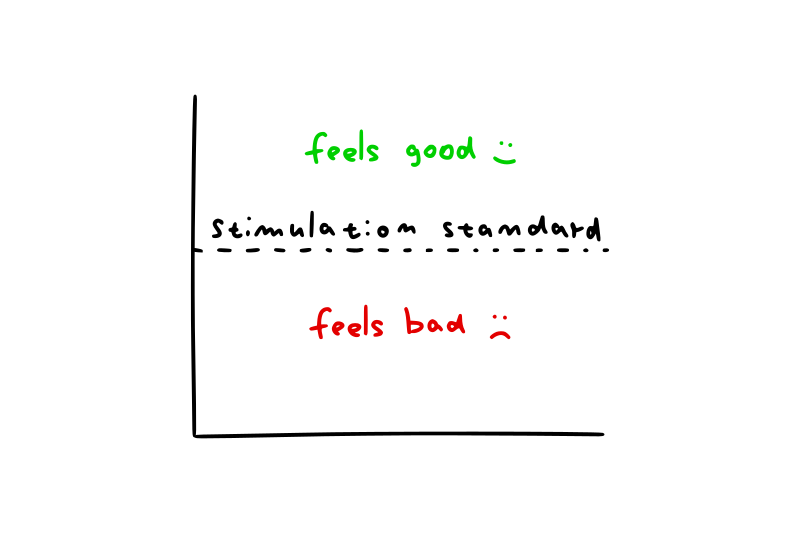
Any time we get below our new normal, we get itchy. We start to look for anything interesting at all. We start to check things.
This constant lookout for more stimulation can have disastrous effects on our levels of focus, as our work tends to live below the desired levels of stimulation most of the time.
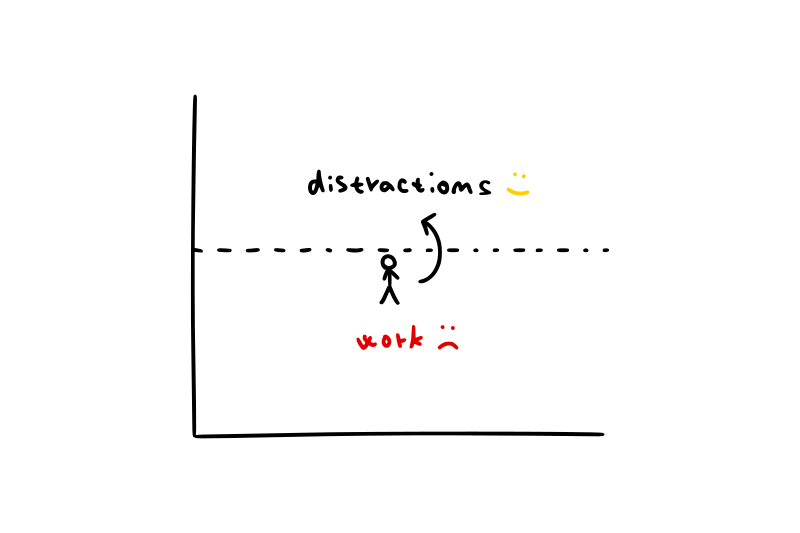
Work often is not immediately as stimulating as distractions. It can't compete with all the social fun of the Internet or the high-fidelity high-speed interactivity of video games. Don't make it compete. Don't try to go immediately from high stimulation of fun to low stimulation of work. Take a break before you switch.
Overstimulation is not a good default mode to be in.
Systematically reduce your normal stimulation levels.
Or in other words, get bored more often.
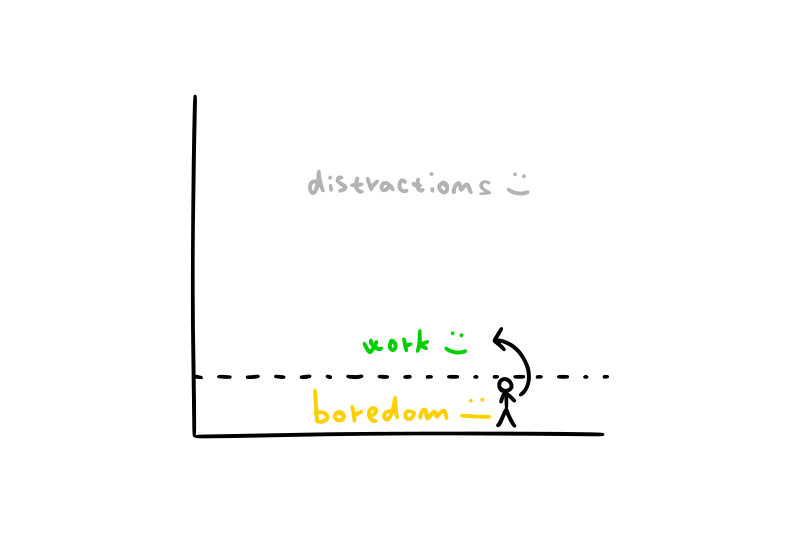
So how can we lower our stimulation standard to become more engaged when dealing with things that will bring us long-term rewards?
Get bored more often
Let's take a look at a couple frequent scenarios when we're tempted to reach for distractions to stay overstimulated.
- In a queue at the supermarket?
Before: check phone (+ stimulation)
After: do nothing, wait (- stimulation) - Waiting for a friend to return from the bathroom?
Before: check phone (+ stimulation)
After: wait, think about what your friend said (- stimulation, + engagement) - Have nothing to do?
Before: scroll Reddit for 2 hours (+ stimulation)
After: relax, look out a window, think about what's something interesting you could do (- stimulation, + creativity)
You can probably find more and more situations where this applies. Look for opportunities to lower your stimulation levels.
Use boredom to work effectively
Say you have a task before you that you feel some stress and dread about. It could be sending an important email, writing a proposal, or designing a new application feature.
Whatever the task is, you don't feel like getting into it. You'd rather check your email. You'd rather check Twitter. You'd rather do anything else and escape to more stimulating places that push work and the stress associated with it out of your mind. For a moment at least.
Don't follow this scenario, instead, do what best-selling author Neil Gaiman does.
He goes to a café with a paper notebook and a fountain pen, orders tea, and either sits there doing nothing, or writes.
Sometimes he may not feel like writing another best-seller. No problem, he sits, and does nothing.
And after 15 minutes of nothing, writing suddenly seems more enticing. He starts to wonder about the stories he could tell. And then perhaps an interesting idea appears and he puts the pen to the paper.
Write or do nothing. That's the rule that works for him. It's based on purposeful understimulation. How could you use it for yourself?

